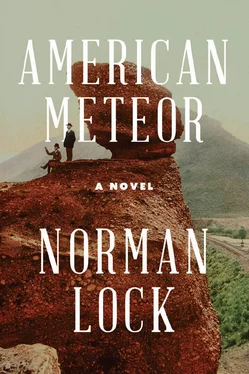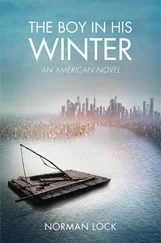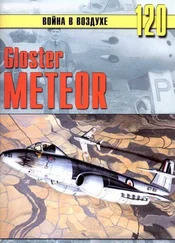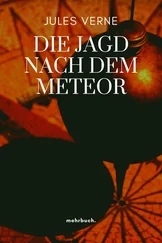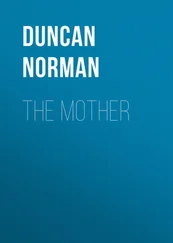Westering was a kind of sickness that swept over the body, a fever of the brain, a craze, a seizure, an unmooring, a tide in which people got caught up like corks in a flood. They were beside themselves with the irresistible desire to leave — to put a continent between their old lives and what they imagined would become of them if they could only emigrate. They’d become famous or infamous, according to their predisposition — or to the dictates of Predestination, if you believe in it. Regardless, they’d — we’d — be judged deserving of honor or the noose, as if there were no hand at our backs, pushing us. And rightly so.
“Durant had your new camera shipped here so I could teach you how to use it.”
Believing Durant had forgotten or dismissed the proposition I’d made him months earlier up in the Black Hills, I was staggered into speechlessness.
“Perhaps you consider instruction in such an uncomplicated instrument unnecessary,” said Edward, rankled by my silence, which he misconstrued as a lofty disdain for his profession.
“No, sir; I’m just surprised is all.”
I doubt Uriah Heep could have made a more convincing show of humility. But Edward was slow to dismount from his high horse. He sat it like a man with a grievance.
“Didn’t you ask him to purchase you a camera?” he went on, hoping to spur me into an admission he could fault. He seemed to have taken a dislike to me — for what reason, I couldn’t guess, unless he was suspicious of Durant’s magnanimity. My white suit and sissified vocation might have made him wonder what sort of creature I was. And whose.
“I did ask him, but as my mother — of blessed memory! — used to say, ‘If wishes were horses, beggars would ride.’”
Whether by invoking a dead mother or by siding with beggars, I managed to quell his hostility. He went inside the darkroom and poured warm varnish over the glass plate and set it to dry. He returned to the studio, where the rainy afternoon cast a submarine light through the high windows.
“He must be a generous man,” he declared: an appraisal, which was, in Durant’s case, as wide of the mark as pyrite is of gold. But I thought it best to agree with him.
“He is that, sir.”
“Generous men are rare in my experience,” he said grudgingly.
“In mine, too,” I said, to let him know that the contents of chamber pots were more likely than manna to fall on my head; sleet, than a gentle rain from heaven.
“Do you know anything at all about photography?” he asked in the voice of a man who had been won over.
I’d never have survived my youth without a disarming, slightly fraudulent manner. I was not a con man, but I borrowed his plausible face and shrewd ways to escape thrashing. Being the universal fate of everything that would seek to rise above the common dirt, thrashing, however, is mostly inescapable.
Edward showed himself to be generous of his time and knowledge, unlike many another master of an esoteric art, who keeps its secrets close in order to lord it over the uninitiated. He disclosed with no-nonsense frankness the alchemy of light and silver that could coax the likeness of a man or mountain onto a piece of glass wet with collodion and silver nitrate and from it — through a straightforward process of developing, rinsing, fixing, washing, varnishing — onto a sheet of albumen-coated paper. In two months’ time, I could make a passable portrait of a water jug or of a hunter just arrived in town after massacring bison on the Nebraska plain, capturing every individual hair of his coonskin cap, every wrinkle of his deerskin shirt and sunburned face, every particular of what made him unique among men, except for his smell, which was as strong and disagreeable as a musk ox’s. In time, I came to grasp the action of light on the silver halides; but what I never understood was how the image of a man made its way across the studio’s rough floor or how the facsimile of a mountain crossed leagues of prairie to light, silently as a moth, on the lens of the camera or of the eyes, for that matter. I doubted Edward knew the science of the thing — or his brother, either, off among the Indians, making portraits that would explain the red man to the white, if anything so quiet and mysterious could reconcile them when the latter was clamoring, by and large, for the former’s extinction.
I’d meet William the following year at the summit. He would further my education by showing me how to make a picture under the big sky, how to vary an exposure according to the light surrounding the subject and its relative motion, and — most important — how to appraise a subject’s value as a testament to human dignity or natural glory. What was not possessed of the “fat light”—an immanence that shed radiance over the world of gross matter — should be left to the portraitists of sausage-shaped ladies and their rich consorts. This final lesson, the hardest, would take some time to learn; but before my instruction could begin, our two lives — wildly divergent until now — would have to converge.
Promontory Summit, Utah Territory, May 10, 1869
I’ve sworn to speak the truth and not gusset it with gossip and conjecture. My visions were neither, and you should take them as Gospel. Except for them — a peep through the transom window, so to speak — I’ve been bound, like anyone, by the ambit of my life, although in the days of which I speak, lives tended to be packed with more occupations and places than in settled times. By the end of the Civil War, half a million people had picked up and moved across the continent and reshaped their identities while they were at it. A single life is too confining for some. The West was a theater in which they might enact the promptings of desire and so enrich themselves.
Land might have been theirs for the taking, but the cost of having forded the Missouri and toiled westward into the unknown was high. I could’ve said “stepped off a precipice and trusted to the air” and told the truth. For every mile of the two-thousand-mile Oregon Trail — blazed in dust and salt, snow and sorrow — from Independence to the Humboldt or up into the Columbia Basin, ten graves marked the way, dug by cholera, dysentery, tuberculosis, mountain fever, snakebite, brain congestion, insanity, murder, tetanus, laudanum overdose, suicide, the high desert’s entombing snows, or other misadventure. Death dealt by enraged Indians routed from tribal lands by wagon trains and cavalry was considerably less than anyone supposed. But I’ll leave facts and figures to the writers of history. It’s enough for a man to keep his own books. My purpose is to account for my time aboveground, whose parentheses enclose the year of my birth in 1848 and that of my death in 1901. I can see by your face you don’t expect me to live out the year. Don’t look so stricken, Jay! There’s no need; I’ve lived a crowded life.
I told you how the rails of the Union Pacific and the Central Pacific met finally in the spring of ’69, in Utah, near Ogden. What I recall of it (a historic moment that inaugurated the settlement and the ruination of the West), I’ve already said — except for my first encounter with William Jackson. I’ll tell you about that meeting, which would set my life going on a new track.
Able photographers were recording the “bond of iron, which is to hold our glorious country in one eternal union,” on their glass-plate negatives. Theirs would be the steel-engraved views printed in newspapers, on stereopticon cards, and, in years to come, in the history books that would revere the tenth of May, 1869, as an American holy day, when Manifest Destiny was sanctified by money and technology. The Indians of the Great Plains and the bedraggled bison that grazed there would have cause to execrate it. But who was there at Promontory Summit to care for the well-being of either? Not Durant and not the Central Pacific’s president, Leland Stanford, who had gone to California in ’52 and, unlike the Chinese, discovered Gum Sham in the miners’ misery from which he profited. And who is there to care when time — friend of those chosen by natural selection — will have disposed of species judged unfit to survive? What the weak and the meek inherit is Oblivion.
Читать дальше
